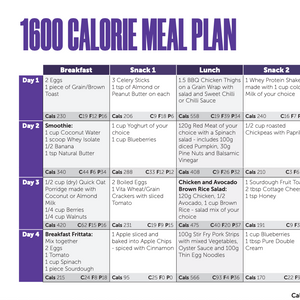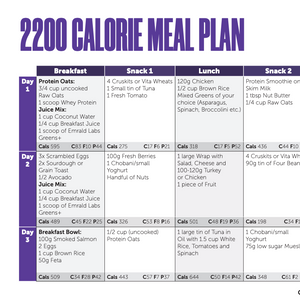How to do intermittent fasting for weight loss
Here’s a little breakdown of what Intermittent Fasting is if you didn't already know about it.
Fasting means you aren’t eating for an extended period of time. If you think about it, fasting isn’t all that unnatural. Your ancestors evolved to thrive in situations when food was scarce.
Intermittent fasting — cycling in and out periods of fasting and eating — is a simple eating plan that makes the most of your body’s own fat-burning systems. Research shows that intermittent fasting is a proven way to help people lose weight.
How weight loss works with Intermittent Fasting
When you’re intermittent fasting, you eat all the food your body needs, but during a shorter period of time. There are many methods, but the most common involves eating during a six to eight-hour window and fasting for the remaining 14 to 16 hours. It’s not as bad as it sounds.
Intermittent fasting triggers a perfect storm of metabolic changes to tackle weight loss and fat reduction.
How does it work?
Reduces calories: If you’re a snacker or tend to grab food on the go, you may be eating more calories than your body needs — and that will show up on the scale. In general, you tend to eat less when you limit the amount of time you can eat during the day.
Kickstarts ketosis: Intermittent fasting is a pathway to the fat-burning state of ketosis. During your fast, your body burns through its glucose reserves (aka carbohydrates) for energy. Then, you start burning fat for fuel.
Lowers insulin levels: This happens in two ways.
First - your body becomes more sensitive to insulin, which can help prevent weight gain and reduce your risk of diabetes. Second - fasting decreases your insulin levels, which can cue your body to start burning stored fat instead of glucose.
Boosts metabolism: In studies, intermittent fasting reprogrammed metabolic pathways to get more energy out of food. Fasting also increases your levels of adrenaline and noradrenaline, hormones that help your body free up more stored energy (that’s your body fat) during a fast. Boosting your resting metabolism helps your body burn more calories throughout the day, even while you rest.
Intermittent fasting isn’t just about achieving a healthy weight. Here are some additional benefits you’ll experience along the way:
- Improves cardiovascular health.
- Reduces inflammation: Lowering inflammation may be the key to maintaining a healthy weight, boosting longevity and reducing your risk of major illnesses.
- Helps remove cellular waste so your body can work even better.
- Increases lifespan and protection against disease.
There is more than one way to start intermittent fasting, which is great because every BODY is different. You can do some more research and even try fasting just once or twice a week, and build up from there. The key is to experiment and listen to your body to see what works best for you. But what we have just learnt is that research shows intermittent fasting to be a powerful tool for helping you reach and maintain a healthy weight.



























































